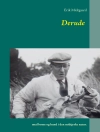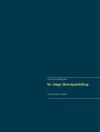Career Planning for Research Bioscientists is an essential careers guide for bioscience doctoral students and postdoctoral researchers. It contains a wealth of information and resources specifically targeted at research bioscientists, with practical strategies to enhance career success in an increasingly competitive job market. Advice on how to write a winning CV together with examples adapted for different jobs is presented, as well as practical exercises to assist with skills analysis and decision making. Profiles of Ph D-qualified bioscienstists in a range of professions including academic research, industry, science communication, management and consultancy provide valuable insights into how others have managed their careers, and tactics such as networking and using social media demonstrate how new opportunities can be discovered. The content of this book is aimed primarily at research bioscientists, however much of the advice and information will be a useful reference for other students and researchers looking for an effective career planning strategy.
A companion website with additional resources is available at www.wiley.com/go/blackford/careerplanning and you can visit Sarah Blackford’s blog at www.biosciencecareers.org for more information.
สารบัญ
Author ‘ s note ix
Acknowledgements xi
1. Introduction 1
Who is this book for? 1
The process of career planning 3
Helping you with your career planning 3
Content of the book 4
How to use this book 5
2. Planning your career 7
The importance of career planning 7
What is career planning? 8
Career planning in action 10
Conclusion 10
3. Self?]awareness 13
What is self-awareness? 13
Practical ways to analyse your ‘self’ and increase
self-awareness 15
Conclusion 29
4. The job market 31
Career sectors 32
Examples of job advertisements 34
Analysis of job advertisements 40
Self-employment 43
Where are the jobs? 44
Conclusion 51
5. Enhancing your employability 53
The changing nature of work 53
Taking responsibility 53
Taking a proactive approach 54
Planned happenstance 55
Personal and professional development 55
Conclusion 64
6. Making applications 67
Employer perspective 67
Presenting a professional image 68
Methods of application 69
Conclusion 82
7. Successful interview technique 83
Types of interviews 83
Interview content: what questions will you be asked? 87
Answering the questions 90
Thinking of questions to ask the interviewer 91
Preparation 91
If you are offered the job 92
If you are not offered the job 93
Conclusion 94
8. Decision making and action planning 95
Careers in research 95
Other career options 96
Decision making 97
Taking action 98
Turning decisions into action 99
Conclusion 102
Afterword 103
Appendix 1: Career narratives 105
Summaried list career narratives 105
1. Michel : professor, US university 106
2. Teresa : research fellow, Austrian university 109
3. John : lecturer, UK university 110
4. Andrew : lead scientist, protein design team, large
agribiotechnology company 113
5. John : scientific team leader, drug metabolism and
pharmacokinetics (DMPK), global contract research organisation
114
6. Joanna : product and R&D manager, small biotech company
116
7. Petra : scientific adviser, protein interaction services
company 117
8. Ann : president and chief executive officer, small
immunoreagent company 119
9. Yfke : senior medical writer, medical vii communications
agency 120
10. Carol : freelance science editor, writer and training
consultant 122
11. Mary : features editor, Teaching Tools in Plant Biology
(learned journal) 124
12. Linda : teacher training co-ordinator, public research
institute 126
13. Ruth : freelance science journalist 127
14. David : research associate, Committee on Science,
Engineering, and Public Policy, National Academy of Sciences;
Outreach Committee Co-chair, AAAS Science and Human Rights
Coalition 12915. Edward : clinical trial co-ordinator, university
cancer trial centre 131
16. Miguel : patent examiner, European Patent Office 133
17. Florent : scientific officer, Marie Curie Actions, European
Commission 135
18. John : healthcare analyst, self-employed partnership 136
19. Annie : technology consultant, international technology
consultancy 138
20. Ian : sound engineer, production services provider 140
Appendix 2: Social media 143
Appendix 3: Example CVs 151
Appendix 4: Support and resources 167
Index 175
เกี่ยวกับผู้แต่ง
Sarah Blackford is the Head of Education and Public Affairs of a large international bioscience learned society. With a Master’s degree in careers guidance in Higher Education and a background in bioscience research, scientific publishing and university careers advisory work, Sarah is uniquely qualified to support research bioscientists with their career planning and management. For over a decade, she has been delivering talks and career workshops in university departments and at international scientific meetings and career events, as well as providing individual career coaching to students and postdoctoral researchers.












